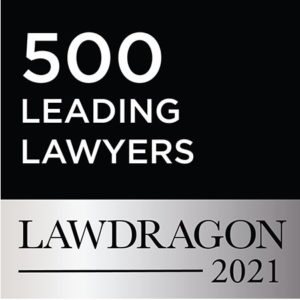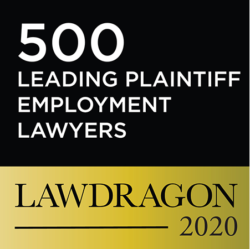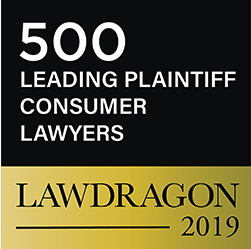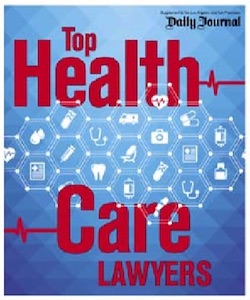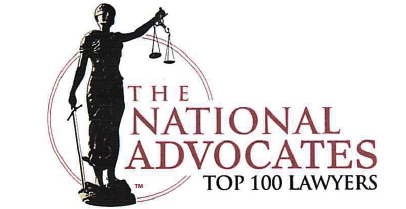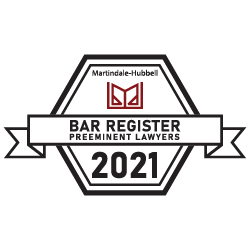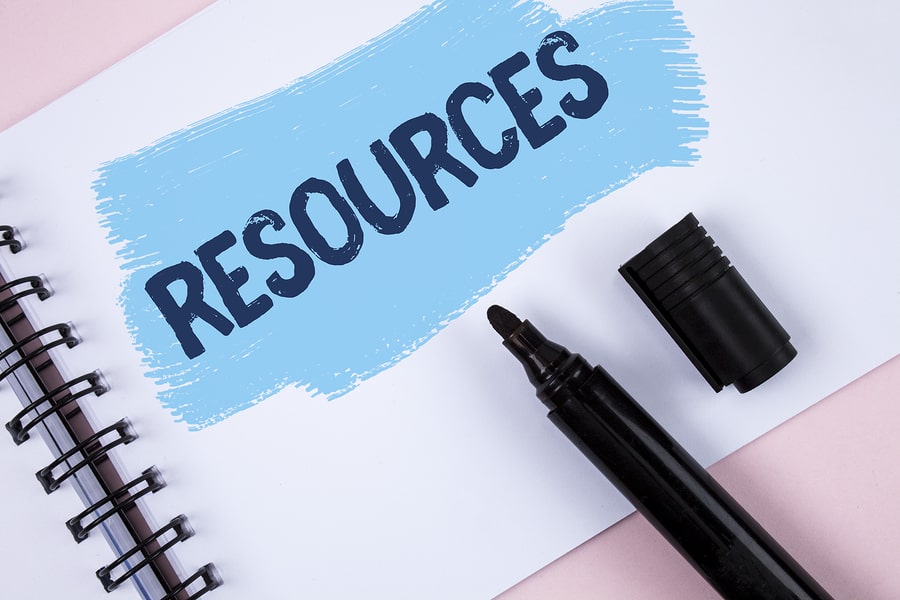
A disability can cause many stresses and struggles in your life. The inability to reliably perform the important duties of your occupation with reasonable continuity and in the usual and customary way can make it difficult to pay your bills or cover the basic needs of your household. Many resources can help people with disabilities, whether they need assistance with medical care or everyday expenses. However, knowing where to turn for help can present some difficulties. The following summarizes some helpful resources for disabled people and their families. If you need help with an individual or group long-term disability claim, do not hesitate to contact America’s top-rated disability litigation firm, DarrasLaw.
National Organizations and Programs
The following programs are able to connect people who have disabilities with assistance or directly provide assistance. You may also want to look into state or local programs that may provide additional information or benefits. Different organizations may help with different things, including household bills, medical care, medication, and more.
211.org
The United Way runs this hotline that connects callers to a wide range of national or local resources that help to meet different immediate needs. You can visit the website or call 2-1-1 directly to seek answers regarding possible help with food, crisis situations, healthcare, and much more. This service provides valuable connections and answers to your questions.
Modest Needs
This organization aims to help working families facing financial crisis but who may not qualify for other types of government assistance. You can apply for short-term grants with no strings attached to help pay bills, purchase food, or cover other costs.
Need Help Paying Bills
This resource provides information on thousands of financial assistance programs, which may include government assistance programs, not-for-profits, charities, churches, and other organizations. You can search by your state to find connections to help with medical bills, groceries, housing payments, bills, and more. You can find out if you qualify for long-term assistance or emergency grants depending on your circumstances.
Aunt Bertha
The motto of this service is “Connecting People and Programs,” and you can search by your zip code to access an extensive database of programs and resources in your area. The database includes reduced cost or free help with medical care, food, housing, education, employment training, transportation and much more.
BenefitsCheckUp
This site, sponsored by the National Council on Aging (NCOA), allows you to access information about more than 2,500 government benefit programs. The site has helped more than 7.6 million people obtain $29.4 billion in benefits for healthcare, medication, housing, utilities, food, income assistance, employment, and more. The program strives for economic security for older adults across the United States. It does the research for you, provides you a customized report of possible benefits based on your situation, and walks you through the application or enrollment process for different benefit programs.
HelpPro
This website works to put “Resources within Reach” for people needing social services. The site narrows down social work and therapy providers by your location, needs, age, insurance coverage, languages spoken, accessibility, religious affiliations, and other factors.
Benefits.gov
This site allows you to browse many government assistance programs by your state and the type of benefits you need. They provide links to a wide variety of services that help people with disabilities, including the following programs:
- Architectural Barriers Act Enforcement
- Assistance for Indian Children with Severe Disabilities
- Assistance in Puerto Rico, U.S. Virgin Islands, and Guam
- Automobiles and Adaptive Equipment for Disabled Veterans and Servicemembers
- Caregiver Programs and Services
- Children of Women Vietnam Veterans Health Care Benefits Program
- Christopher and Dana Reeve Paralysis Resource Center
- Client Assistance Program (CAP)
- Clothing Allowance
- Division of Coal Mine Workers’ Compensation (DCMWC)
- Division of Longshore and Harbor Workers’ Compensation (DLHWC)
- Early Intervention Program for Infants and Toddlers with Disabilities
- Family and Medical Leave Act (FMLA)
- Former Worker Medical Screening Program (FWP)
- Gratuitous Service-Disabled Veterans Insurance (ARH)
- Home Based Primary Care (HBPC)
- Independent Living Services for Older Individuals Who Are Blind
- Job Accommodation Network (JAN)
- Mental Health Residential Rehabilitation Treatment Programs
- National Center on Physical Activity and Disability
- National Library Service for the Blind and Physically Handicapped
- National Limb Loss Information Center
- Non-Discrimination in Federally Assisted and Conducted Programs (On the Basis of Disability)
- Payments for Children of Women Vietnam Veterans Born with Certain Birth Defects
- Protection and Advocacy of Individual Rights
- Public Safety Officers’ Benefits Program
- Respite Care
- Section 811 Supportive Housing for Persons with Disabilities
- Service-Disabled Veterans Insurance (S-DVI)
- Services and Aid for Blind Veterans
- Special Education – National Activities – Parent Information Centers
- Spina Bifida Health Care Benefits Program
- Supplemental Security Income (SSI)
- Supplemental Service Disabled Veterans Insurance
- TRIO Student Support Services
- Tax Help for People with Disabilities
- The Energy Employees Occupational Illness Compensation Program Act (EEOICPA)
- VA – Birth Defects Assistance – Payments for Children with Spina Bifida whose Parents Served in Vietnam or Korea
- VA Community Living Centers (VA Nursing Home Care)
- Veterans Pension
- Veterans Prosthetic Appliances
- Veterans’ Compensation for Service-Connected Disabilities
- Vocational Training for Children with Spina Bifida or Certain Birth Defects
- Volunteer Income Tax Assistance (VITA)
- Waiver of Insurance Premiums for Disabled Veterans
Benefits.gov also provides links to many other types of government assistance, including housing and employment services.
Caring Voice Coalition
This site has a Helpful Resources tool that helps direct you to national and/or local services based on your specific needs. You can search for financial resources according to your diagnosis or search general patient advocacy groups and associations, government programs and agencies, charitable foundations, and more.
Assistance With Prescription Medications
Many people with disabilities need critical prescription medications, but cannot always afford the prices at their local pharmacy. The following are some resources that can help lower drug costs to ensure you have the medication you need.
GoodRx
GoodRx is a search engine available on the web and a mobile app that aims to lower drug costs for patients, and about four million people use this service each month. You type in the medication you need, add filters based on your insurance, and GoodRx then checks more than 75,000 pharmacies across the United States to find the best prices. It also will look for coupons for your medication, as well as other types of patient assistance programs. GoodRx has also worked behind the scenes to negotiate directly with major pharmaceutical companies for lower drug costs.
Partnership for Prescription Assistance
The mission of this free service is to increase access to and awareness of a variety of patient assistance programs that may help you. The service can connect you with as many as 200 programs from biopharmaceutical companies, as well as 475 private and public patient assistance programs. Millions of people have obtained very low cost or free prescription drugs through Partnership for Prescription Assistance (PPA). To get started, head here and begin the application, which requires basic information about you and your medication. PPA also has a search tool to connect you with low-cost or free clinics.
RxAssist
This service connects you with patient assistance programs that may help with your drug costs. When you search by the type of prescription you need, RxAssist can help you find many possibilities to reduce your costs, including charitable programs, local social service organizations, community health centers, and even help from the drug companies themselves.
Rx Outreach
This not-for-profit is dedicated to ensuring everyone has access to the prescription drugs they need. It is a fully licensed mail-order pharmacy service that assists people who meet certain income requirements to receive shipped medications at a lower cost. The service has saved more than $662 million for nearly 300,000 patients since 2010 and has over 1,000 medication strengths available.
Resources for Patients With Rare Diseases
Having a rare disease can be devastating and alienating, as others—from friends to employers—may not understand the debilitating effects of the disease on your life and the proper treatment you need. These organizations focus on assisting patients with rare diseases and disabilities.
National Institute of Health (NIH) Genetic and Rare Diseases Information Center
The NIH’s Genetic and Rare Diseases Information Center (GARD) unfortunately cannot provide direct financial assistance. However, when you type in the name of your rare disease, it will connect you with information about helpful government, community, and not-for-profit programs, as well as tips for living with your disabling condition. Some programs you can connect with through GARD include:
- Needy Meds – A not-for-profit that lists programs that assist patients in affording healthcare and medication costs, including disease-specific aid programs.
- Patient Advocate Foundation (PAF) – A case management assistance program for people with disabling or life threatening conditions who are underinsured or uninsured. PAF can help with healthcare access, copays, and other disability-related services. You can also use PAF’s National Financial Resource Directory.
- Family Voices – This program aims to connect families with care for children who have disabilities and/or special healthcare needs. You can use the site to find the appropriate Family-to-Family Health Information Center in your state.
- The Assistance Fund – This service helps people with serious or chronic injuries or illnesses obtain the medications they need.
- Good Days – This site provides assistance to people with certain life-altering conditions, contributing to or covering the costs of medications or travel for healthcare.
National Organization for Rare Disorders (NORD)
NORD provides information about research studies and clinical trials focused on rare conditions. While NORD does not endorse patient participation in any particular studies, it can help connect you with the right study or trial that can provide the medical care you need at little to no cost.
Global Genes
This organization provides a wealth of educational information for patients with rare diseases, working to build supportive communities, empower patients, and assist with the daily challenges that come with rare diseases. Global Genes also provides connections to the RARE Patient Impact Grant program that can help patients and families in need.
Resources for Patients With Cancer
Cancer is a common cause of disabilities for people in the United States. After a cancer diagnosis, you need the financial, medical, and social support to get through treatment and continue to support your household. Consider looking into the following important resources for cancer patients.
CancerCare
This organization has connected cancer patients with counseling, support groups, oncology social workers, financial assistance, and more for 75 years. You can search through financial assistance programs that help cover copays, transportation for treatment, and the many other financial complications that come with cancer.
National Cancer Institute
As part of the National Institutes of Health, the National Cancer Institute provides tips for finding the services you need, as well as links for you to directly access more than 100 programs and support services that help to meet the financial, practical, and emotional needs of cancer patients and their families. You can search by the type of cancer you have, the support you need, and other terms.
Contact a Nationally Acclaimed Individual and Group Long-Term Disability Litigation Firm You Can Trust
A disabling injury or illness can cause many physical, emotional, and financial complications. The internet has a wealth of resources for people with short- or long-term disabilities that provide social, medical, and/or financial assistance. These resources can supplement your individual or group long-term disability insurance benefits, improve your quality of life, and ensure you have the care and treatment you and your family needs.
The award-winning individual and group long-term disability attorneys at DarrasLaw work nationally to ensure their clients have access to the full benefits they need and deserve. Our firm always offers completely free disability policy analysis and free claim consultations so you can learn more about your legal rights and options, as well as how we can assist you. If you need real help with an individual or group long-term disability claim or denial, call our award winning attorneys at 800-898-7299 or send us an email using our online contact form.




